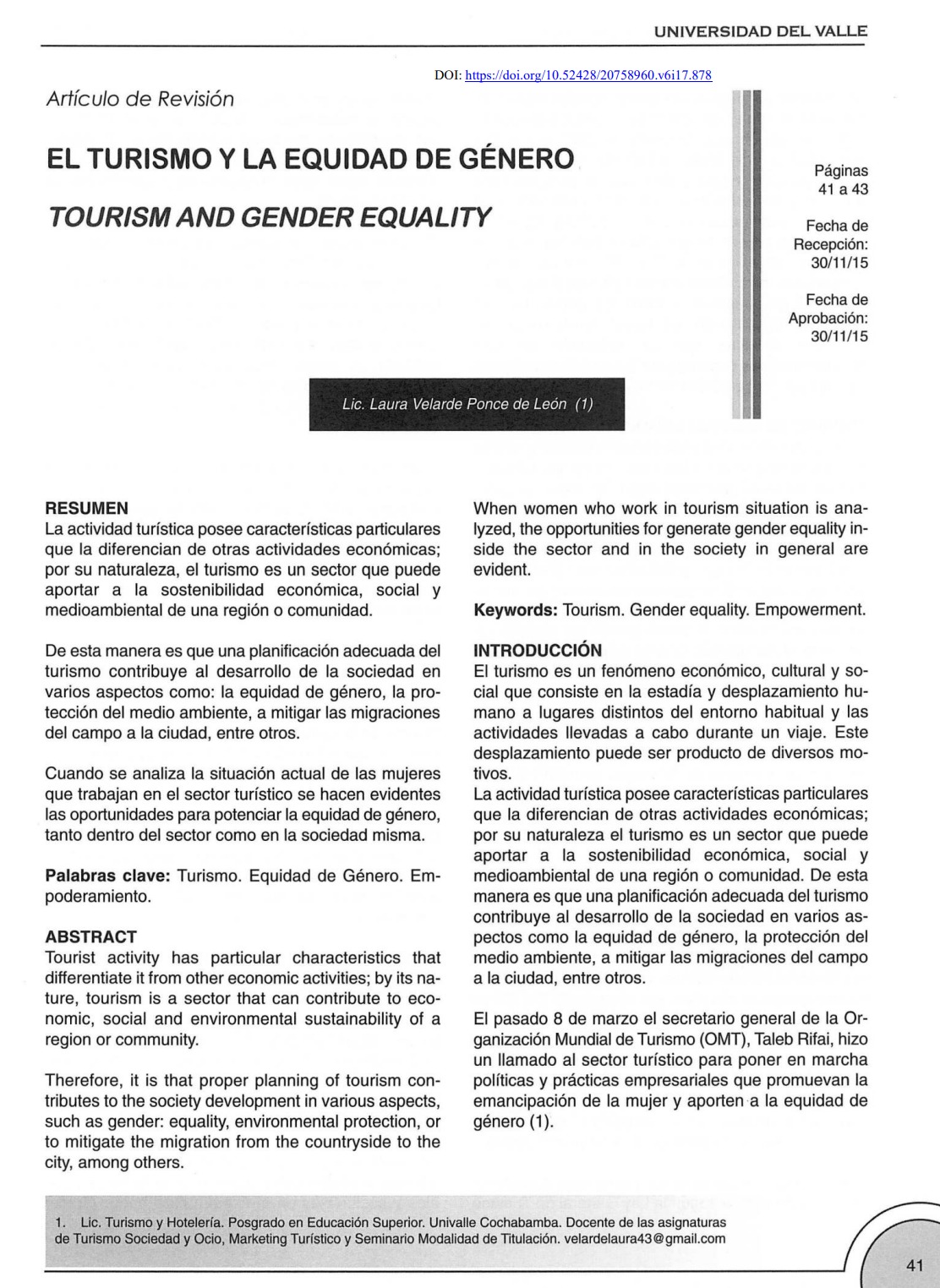Tourism and Gender Equality
DOI:
https://doi.org/10.52428/20758960.v6i17.878Keywords:
Tourism, Gender equality, EmpowermentAbstract
Tourist activity has particular characteristics that differentiate it from other economic activities; by its nature, tourism is a sector that can contribute to economic, social and environmental sustainability of a region or community. Therefore, it is that proper planning of tourism contributes to the society development in various aspects, such as gender: equality, environmental protection, or to mitigate the migration from the countryside to the city, among others. When women who work in tourism situation is analyzed, the opportunities for generate gender equality inside the sector and in the society in general are evident.
Downloads
References
lnternational Women’s Day: Tourism sector can do more to step it up on gender equality. [Actualizado 8 marzo 2015; citado 25 mayo 2015] Disponible en: http://media.unwto.org/es/node/42903
Ley integral para garantizar a las mujeres una vida libre de violencia Nº 348, 9 de marzo de 2013
Ley general de turismo "Bolivia te espera" Nº 292, 25 de septiembre de 2012
Un día para las comunidades. [Actualizado 2013; citado 25 mayo 2015] Disponible en: http://www.tusoco.com/index_2.php?mod=lugares_turisticos&cod=23

Downloads
Published
How to Cite
Issue
Section
License
Copyright (c) 2015 Laura Velarde Ponce de León

This work is licensed under a Creative Commons Attribution 4.0 International License.
Authors who publish with this journal agree to the following terms:
- Authors retain copyright and grant the journal right of first publication with the work simultaneously licensed under a Creative Commons Attribution License 4.0 that allows others to share the work with an acknowledgement of the work's authorship and initial publication in this journal.
- Authors are able to enter into separate, additional contractual arrangements for the non-exclusive distribution of the journal's published version of the work (e.g., post it to an institutional repository or publish it in a book), with an acknowledgement of its initial publication in this journal.
- Authors are permitted and encouraged to post their work online (e.g., in institutional repositories or on their website) prior to and during the submission process, as it can lead to productive exchanges, as well as earlier and greater citation of published work.









